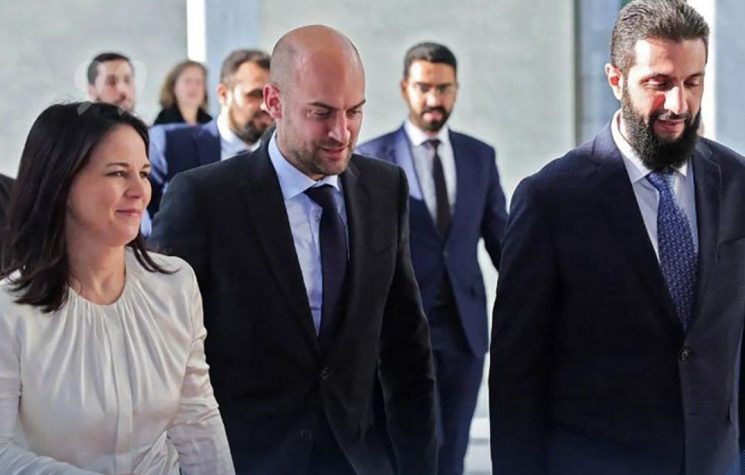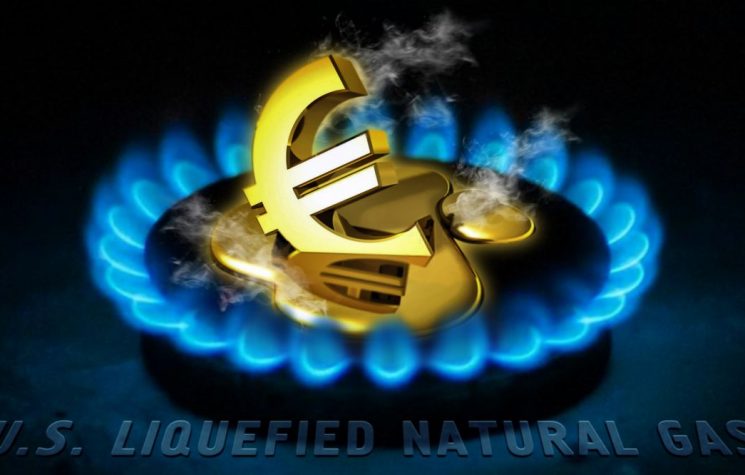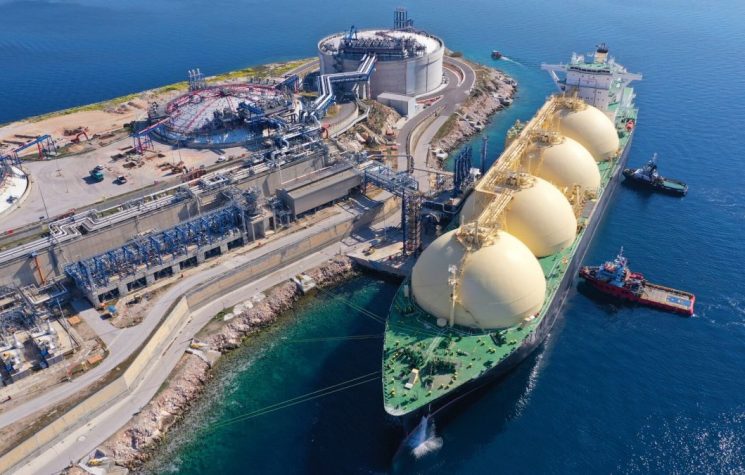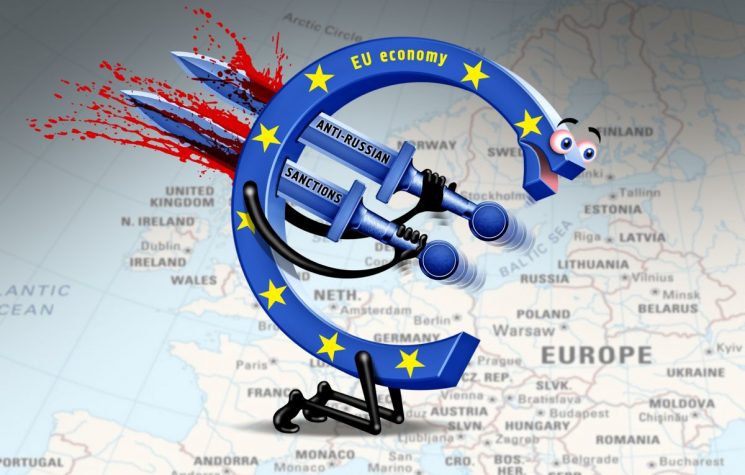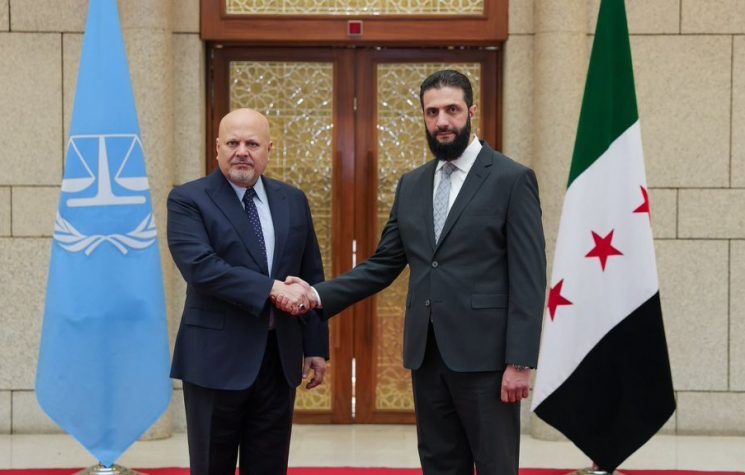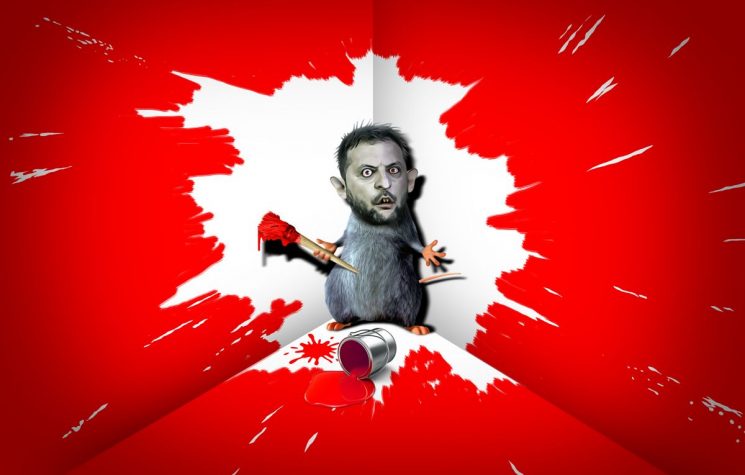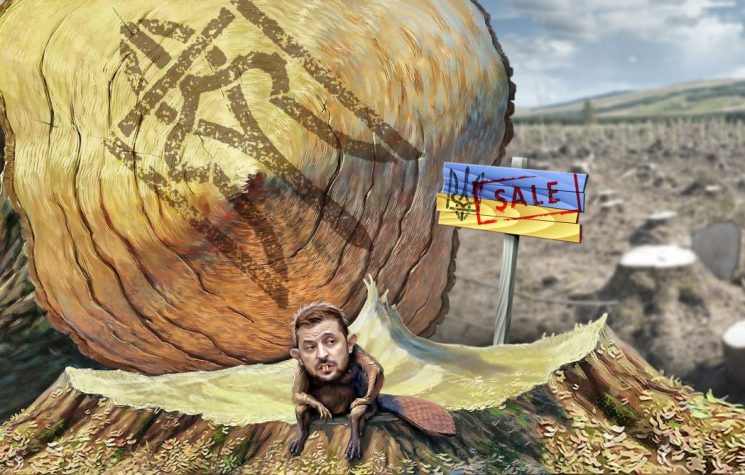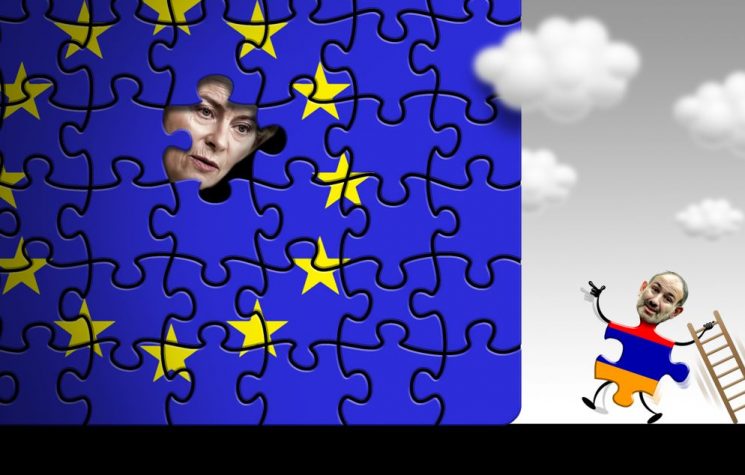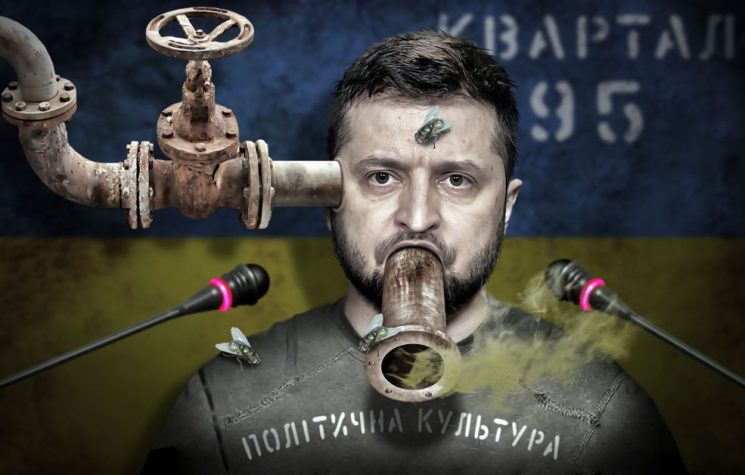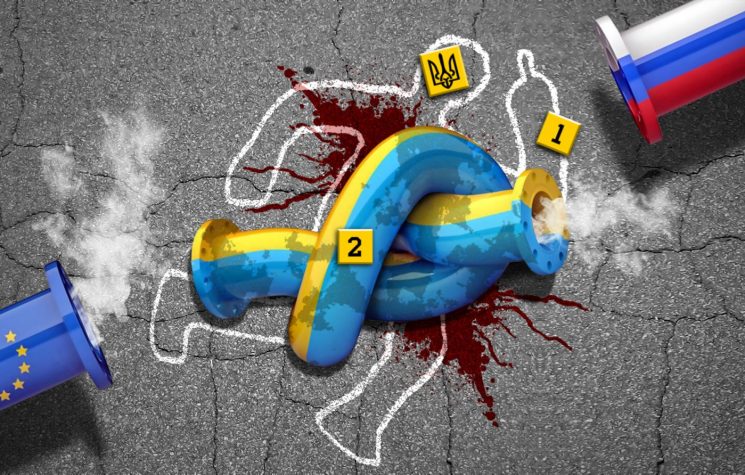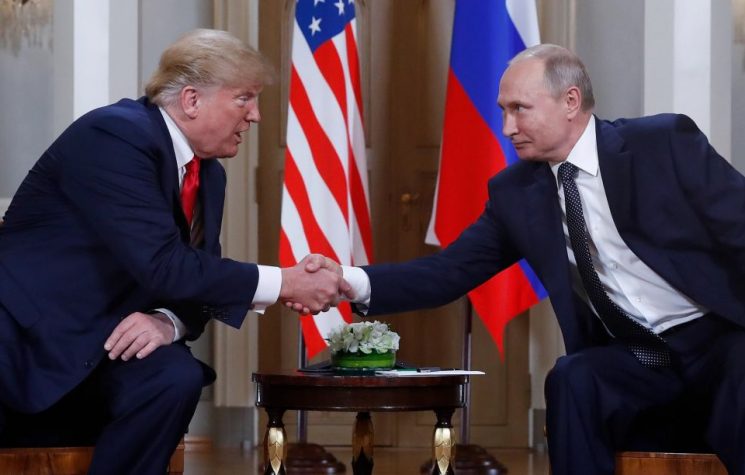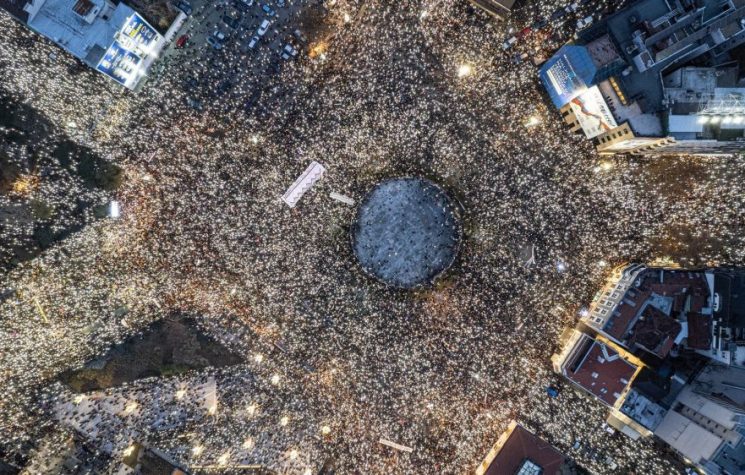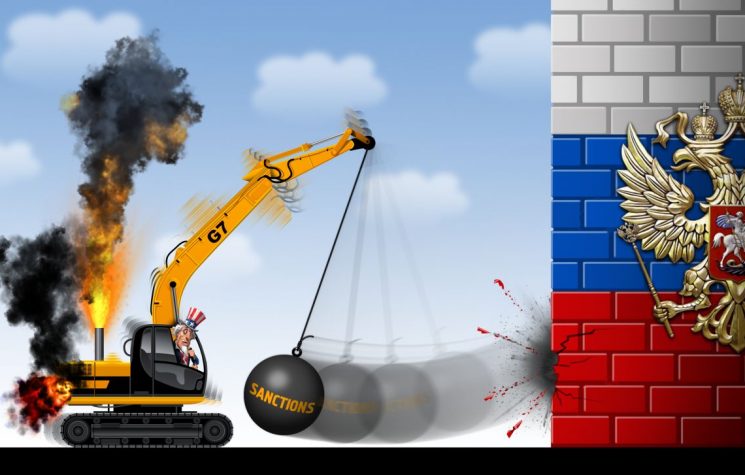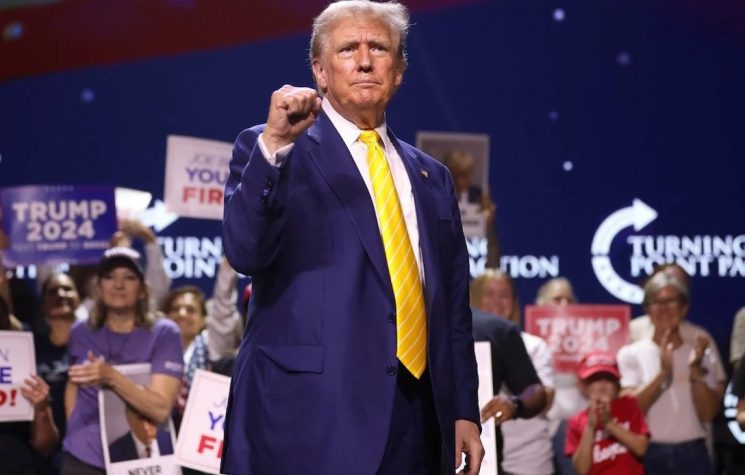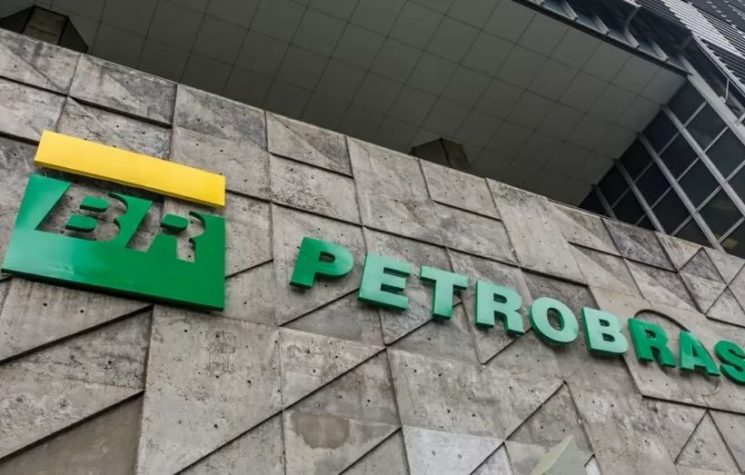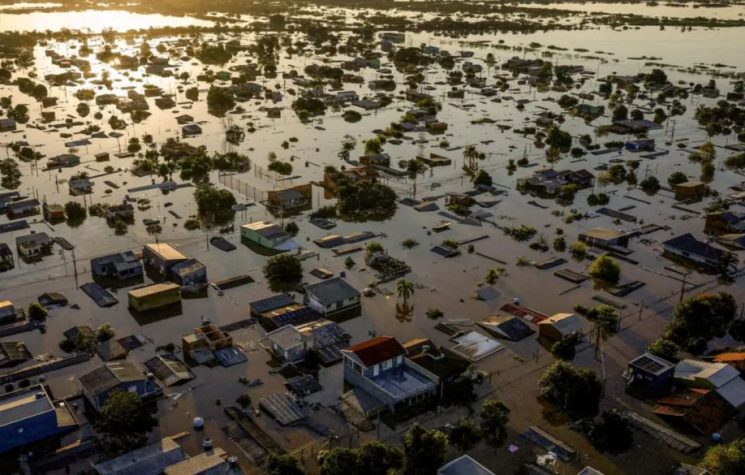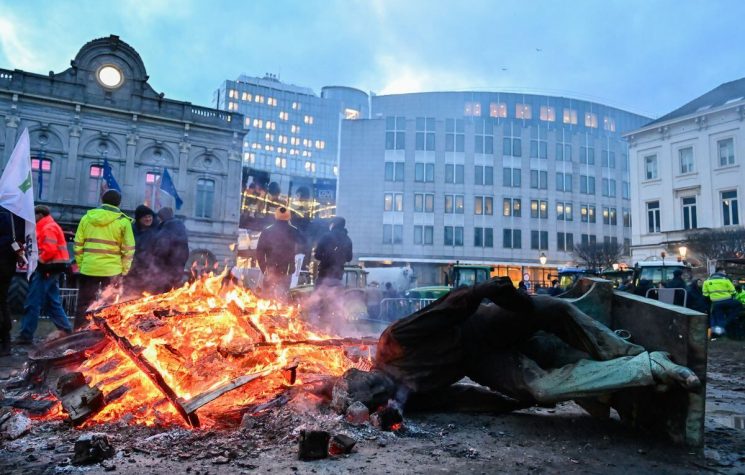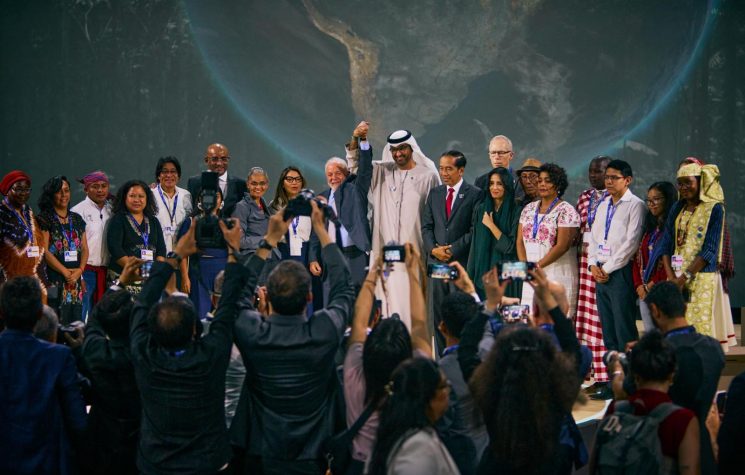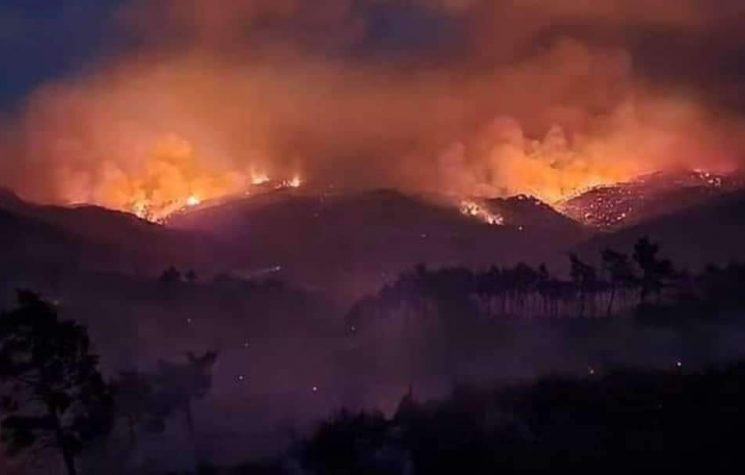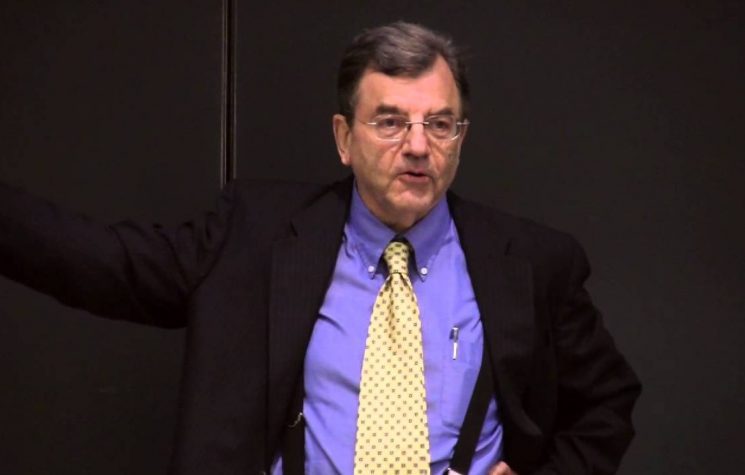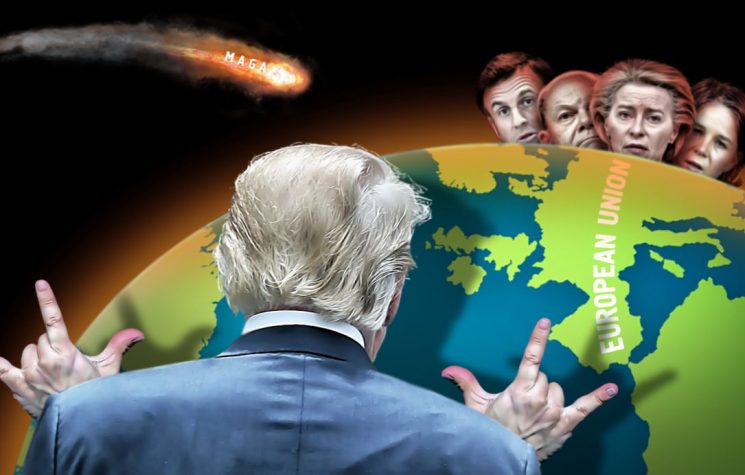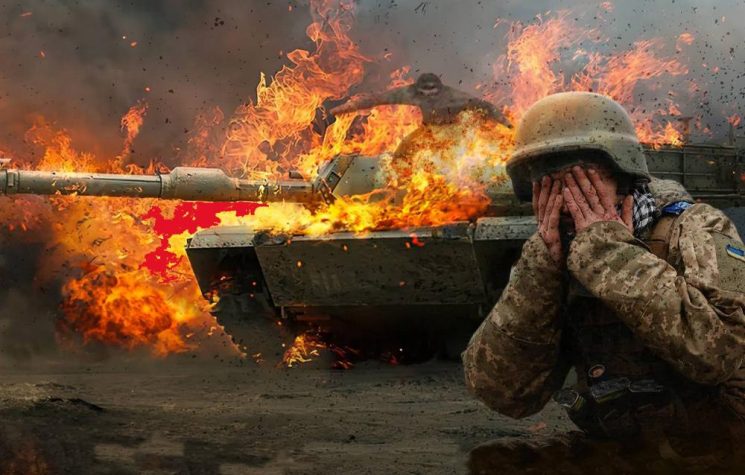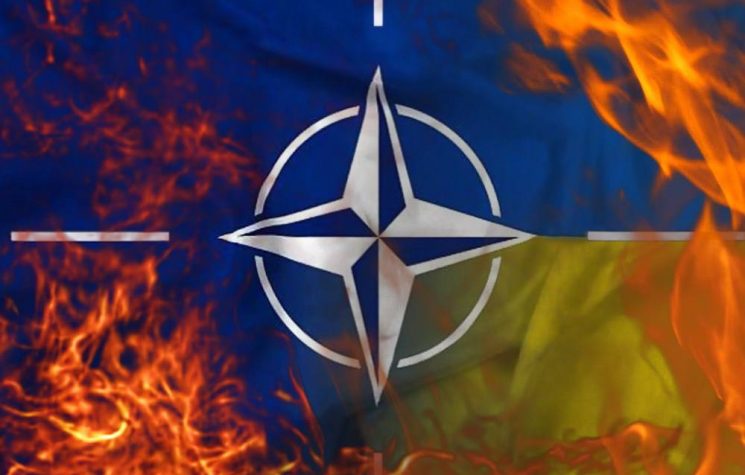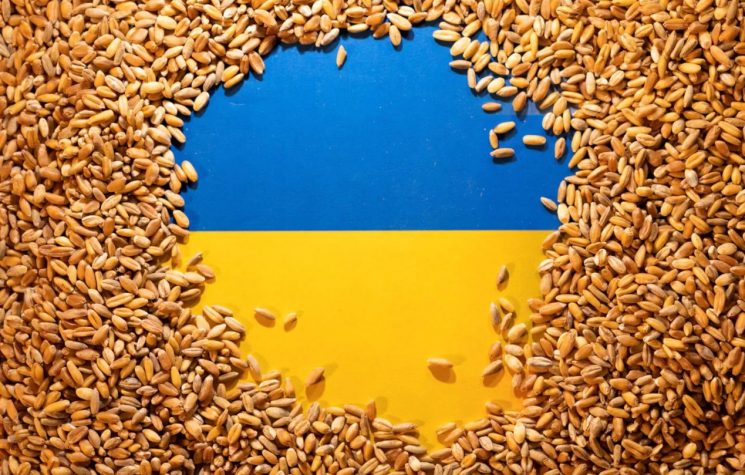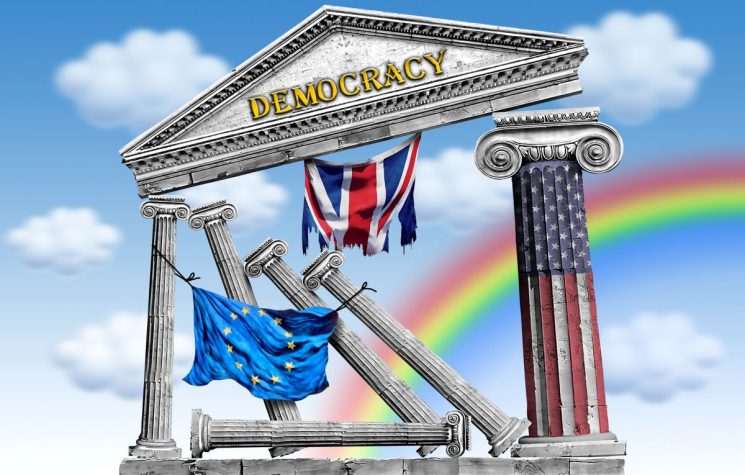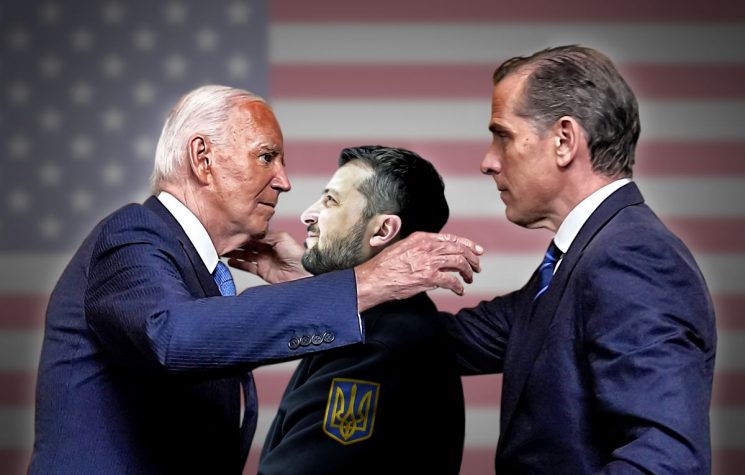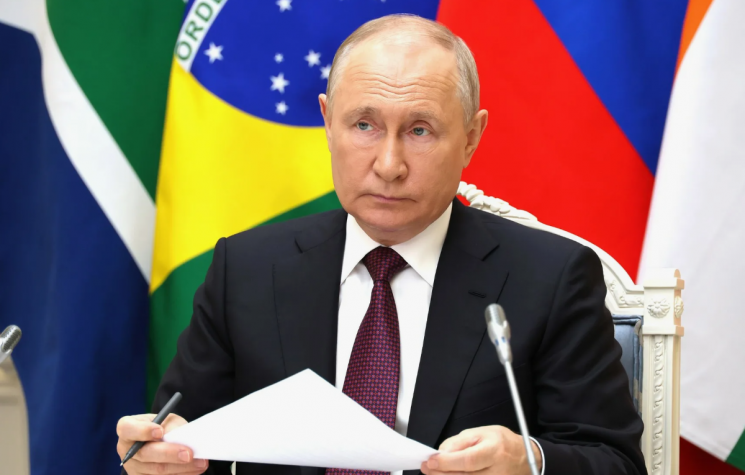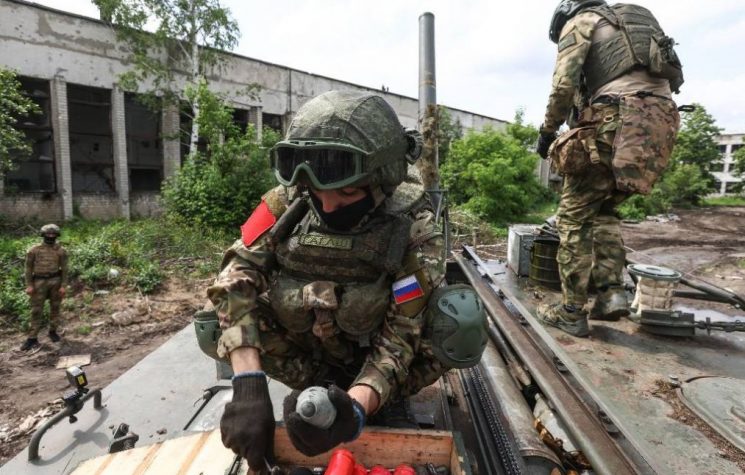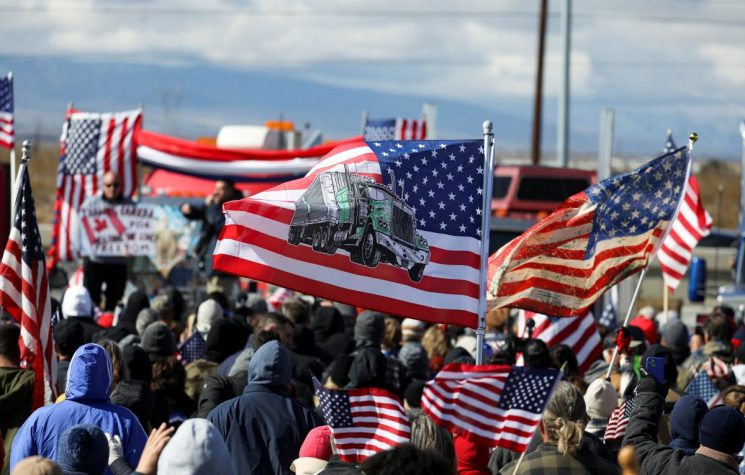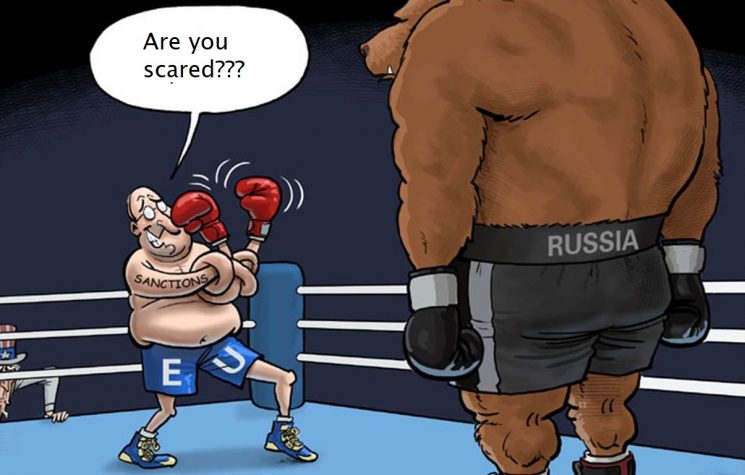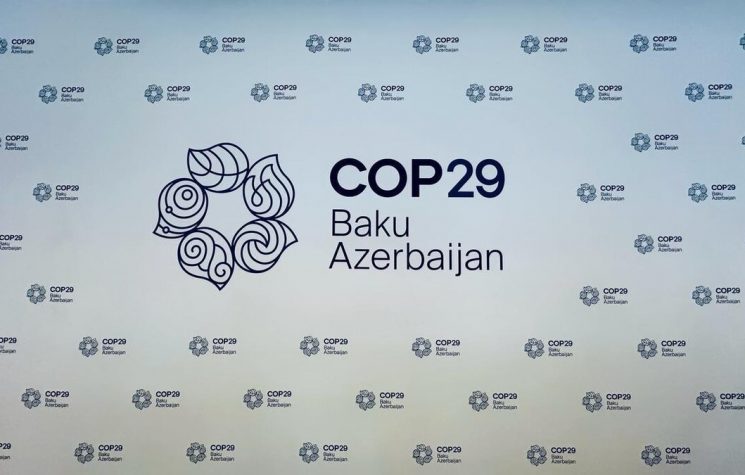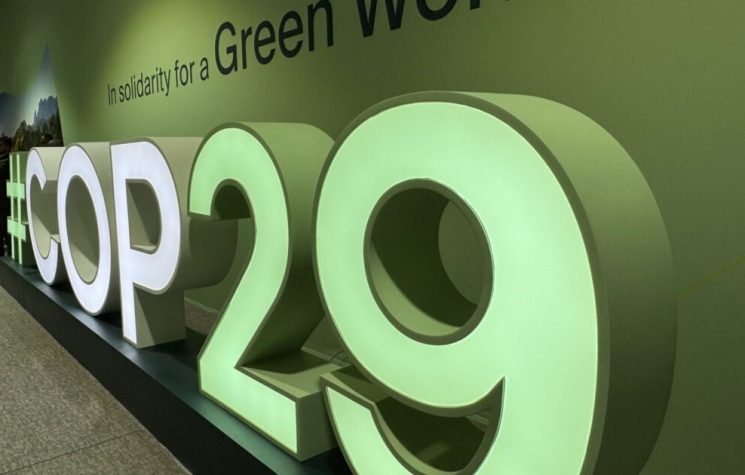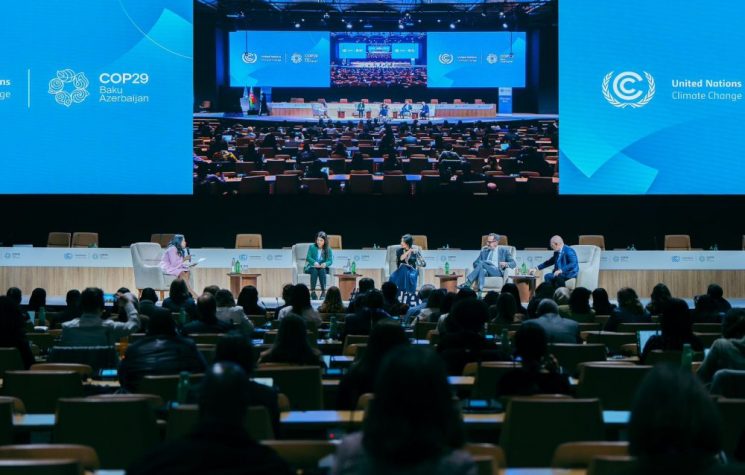Europe sinks into being a distant backward province to a falling ‘Imperial Rome’, Alastair Crooke writes.
The Club of Rome, founded in 1968 as a collective of leading thinkers pondering global issues, took as its leitmotiv the doctrine that to view the problems of humankind individually, in isolation or as “problems capable of being solved in their own terms”, was doomed to failure – “all are interrelated”. Now, fifty-years on, this has become an unquestioned ‘revealed truth’ to a key segment of western populations.
The Club of Rome subsequently attracted immediate public attention with its first report, The Limits to Growth. Published in 1972, the Club’s computer simulations suggested that economic growth could not continue indefinitely because of resource depletion. The 1973 oil crisis increased public concern about this problem. The report went ‘viral’.
We know the story: A group of western thinkers were posed three questions: Can the planet sustain a European-style level of consumption spreading everywhere, across the globe? The answer from these thinkers was ‘clearly not’. Second question: Can you imagine western states voluntarily relinquishing their standard of living by de-industrialising? Answer: A definite ‘No’. Must a lower plane of consumption and use of energy and resources then be coerced upon reluctant populations? Answer: Definitely ‘Yes.
The second ‘big thought’ from the Club came in 1991, with the publication of The First Global Revolution. It notes that, historically, social, or political unity has commonly been motivated by imagining enemies in common:
“In searching for a common enemy against whom we can unite, we came up with the idea that pollution, the threat of global warming, water shortages, famine and the like, would fit the bill. In their totality and their interactions these phenomena do constitute a common threat … [and] all these dangers are caused by human intervention in natural processes. It is only through changed attitudes and behaviour that they can be overcome. The real enemy then is humanity itself”.
It is not the purpose here to argue whether the ‘Climate Emergency’ is well-founded in non-politicised science – or not. But rather, to make the point that: ‘It is, what it is’. Its psychic iconography has been caught by the ‘Greta’ schoolgirl cult.
Whatever its merits – or flaws – a significant stratum of society in the West have come to the conviction – one to which they are both convinced intellectually and do believe – that a ‘Climate Emergency’ be so self-evidently correct: that any contradictory evidence and the argument should be disowned emphatically.
This has become the existential western fear: population growth, finite resources and excessive consumption spell the end of our planet. We need to save it. Not surprisingly, wrapped around this ‘way of thinking’ are the earlier western themes of identity politics; eugenics; the Darwinian survival of the elect (and the elimination of the ‘lesser’ iterations of life) and European nihilism (the real enemy is ‘we’, ourselves).
Of course, the ‘other’ facet to this western projection of ‘reality’ which is becoming starkly apparent is the hard fact that Europe simply doesn’t have any ready energy or raw material supplies into which it can tap (having turned its back on the obvious source). And as Elon Musk has noted, “In order for civilization to continue to function, we do need oil and gas”; adding that “any reasonable person would conclude that”. Not only should oil and gas continue to be used to keep civilization running, but Musk said that further exploration “is warranted at this time”.
Thus, western governments must either invite economic misery on a scale that would test the fabric of democratic politics in any country – or face the reality that issues of energy supply effectively place a limit to the extent the ‘Save Ukraine’ project can be pursued (without provoking popular revolt at resulting price hikes).
This unfolding real ‘reality’ of course, also limits by extension the derivative western geo-strategic objective associated with Ukraine – which is the saving of the ‘liberal rules order’ (so central to western cares). The obverse ‘face’ to this central fear, then is the worry that the world order already is so broken – because trust is gone – that the emerging world order will not at all be shaped by the Western liberal vision, but by an alliance of economies getting ever closer economically and militarily – whose trust in the U.S. and Europe is gone.
In our formerly interconnected world, where Zoltan Pozsar suggests that what he calls Chimerica (the term for Chinese manufactory, snugly married to a U.S. consumerist society); and Eurussia (where Russian energy and raw materials leveraged value for Europe’s manufacturing base) no longer exist – they have been replaced by ‘Chussia’.
If Chimerica does not work anymore, and Eurussia does not work either, inexorably the global tectonic plates re-position around the special relationship between Russia and China (‘Chussia’) – which, together with the core economies of the BRICS block acting in alliance with the ‘King’ and the ‘Queen’ on the Eurasian chessboard, a new “heavenly match” is forged from the divorce of Chimerica and Eurussia …
In short, the global structure has changed, and with trust gone, “trade as we know it, is not coming back, and it is why soaring inflation isn’t going to be tamed any time soon, either … Global supply chains work only in peacetime, but not when the world is at war, be it a hot war – or an economic war”, notes Pozsar, the leading guru of western financial plumbing.
Today, we are witnessing the implosion of the ‘just in time’ long supply chains of the globalized world order, where corporations assume they can always source what they need, without moving the price:
“The triggers here [to implosion] aren’t a lack of liquidity and capital in the banking and shadow banking systems. But a lack of inventory and protection in the globalized production system, in which we design at home and manage from home, but source, produce, and ship everything from abroad – and, where commodities, factories, and fleets of ships are dominated by states – Russia and China – that are in conflict with the West” (Pozsar).
Yet more significant is the ‘big picture’: That foregone interconnectedness and trust was that which – very simply – underwrote low inflation (Chinese cheap manufactures and Russian cheap energy). And from low inflation flowed the companion piece of low interest rates. These together, comprise the very ‘stuff’ of the western global project.
Pozsar explains:
“The U.S. got very rich by doing QE. But the license for QE came from the ‘lowflation’ regime enabled by cheap exports coming from Russia and China. Naturally, [situated at] the top of the global economic ‘food chain’ – the U.S. – doesn’t want the ‘lowflation’ regime to end, but if Chimerica and Eurussia are over as unions, the lowflation regime will have to end, period”.
These represent essentially the Orientalist existential disquiets. Russia and China, however, have their own – separate – existential disquiet too. It arises from a different anxiety source. It is that America’s endless, forever-wars, undertaken to justify its predatory political and financial expansionism; plus, its obsession to spread a NATO blanket wrapping the entire planet, will – inevitably – one day end in war – war that will go nuclear, and risk the end to our planet.
So, here we have two anxieties – both potentially existential. And disconnected; passing each other unheard. The West insists that Climate Emergency is primordial, whereas Russia, China and the ‘Mackinder World Island’ States contrive to force the West to abandon its presumption of global Mission, its hegemonic Vision’, and its risky militarism.
The question for Russia-China then, is how (paraphrasing Lord Keynes) to change long-term attitudes, dating back centuries, in the short term, without going to war. The latter qualification is particularly pertinent since a weakening hegemon is all the more apt to lash out in anger and frustration.
Lord Keynes’ answer was that an à outrance ‘strike’ on long-held perceptions was required. To do this ‘operation’, Russia has seized firstly on the Achilles’ Heel of an over-leveraged western economy that consumes way more than it produces as output, as one means to strike at embedded perceptions through economic pain.
And secondly, through appropriating to itself the Climate Emergency, Russia snatches the former western global sphere away from the West, as means to undermine its perception of itself – enjoying some imaginary global approbation.
The first pathway was opened by Europe imposing sanctions on Russia. Likely, the Kremlin broadly anticipated the western sanctions riposte when deciding to launch the Special Military Operation on 24 February (there was, after all, the 1998 precedent). And therefore, the Russian leadership probably calculated too, that the sanctions would boomerang against Europe – imposing an economic misery on a scale that would test the fabric of democratic politics, leaving its leaders to face a reckoning with an angry public.
The second pathway has been contrived through a concerted extension of Russian power through Asian and African partnerships on which it is building political relationships – based on control of global fossil-fuel supplies and much of the world’s food and raw materials.
Whereas the West is hectoring the ‘rest of the world’ to embrace Net Zero targets, Putin is offering to release them from the West’s radical climate change ideology. The Russian argument has a certain aesthetic beauty to it, too: the West has turned its back on fossil fuels, planning to phase them out entirely, in a decade or so. And it wants you (the non-West) to do the same. Russia’s message to its partners is that we well understand that this is not possible; your populations want electricity, clean water supplies and industrialisation. You can have oil and natural gas, they say, and at a discount to what Europe has to pay (making your exports more competitive).
The Russia-China axis is pushing at an open door. The non-West thinks, the West has its high modernity, and now they want to kick away the ladder beneath them, so that others may not join. They feel that these western ‘targets’ such as ESG (Environment, Social and Governance) norms are but another form of economic imperialism. Further, the Non-Aligned, proclaimed values of self-determination, autonomy, and external non-interference, today appeal much more than western ‘woke’ values, which have little traction in much of the world.
The ‘beauty’ of this audacious ‘steal’ of the former western sphere lies with Commodity Producers producing less energy yet pocketing higher revenue; and enjoying the benefit of higher commodity prices raising national currency valuations, whilst consumers get energy and pay in national currencies.
And yet … will this Russian-Chinese approach be enough to transform the western zeitgeist? Will a battered West start to listen? Possibly, but what seems to have shaken everyone, and may have been unexpected, was the explosion of visceral, Russophobia emanating out of Europe in the wake of the Ukraine conflict, and secondly, the way propaganda has been elevated to a level that precludes any ‘reverse-gear’.
This metamorphose may take much longer – as Europe sinks into being a distant backward province to a falling ‘Imperial Rome’.










